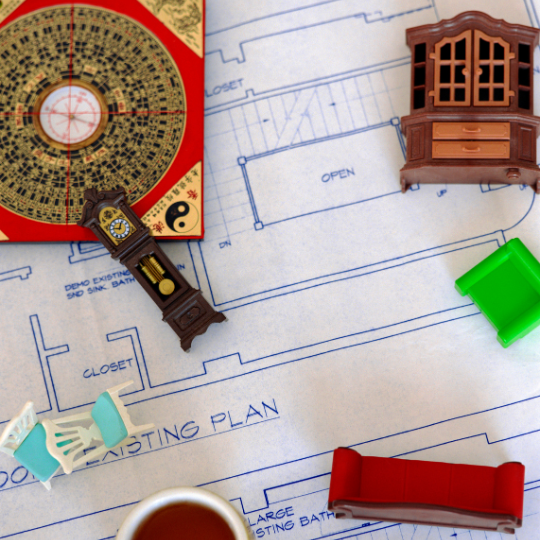
Feng Shui FAQ for Beneficial Home Energy Flow
Table of Contents
Feng Shui, the ancient Chinese art of harmonizing energy in the environment, has gained popularity worldwide for its potential to bring balance and positive vibes to spaces. As more people embrace this holistic approach to design and living, common questions about Feng Shui often arise. We will explore and answer some of these frequently asked questions, shedding light on the principles and practices of Feng Shui.
What is Feng Shui, and how does it work?
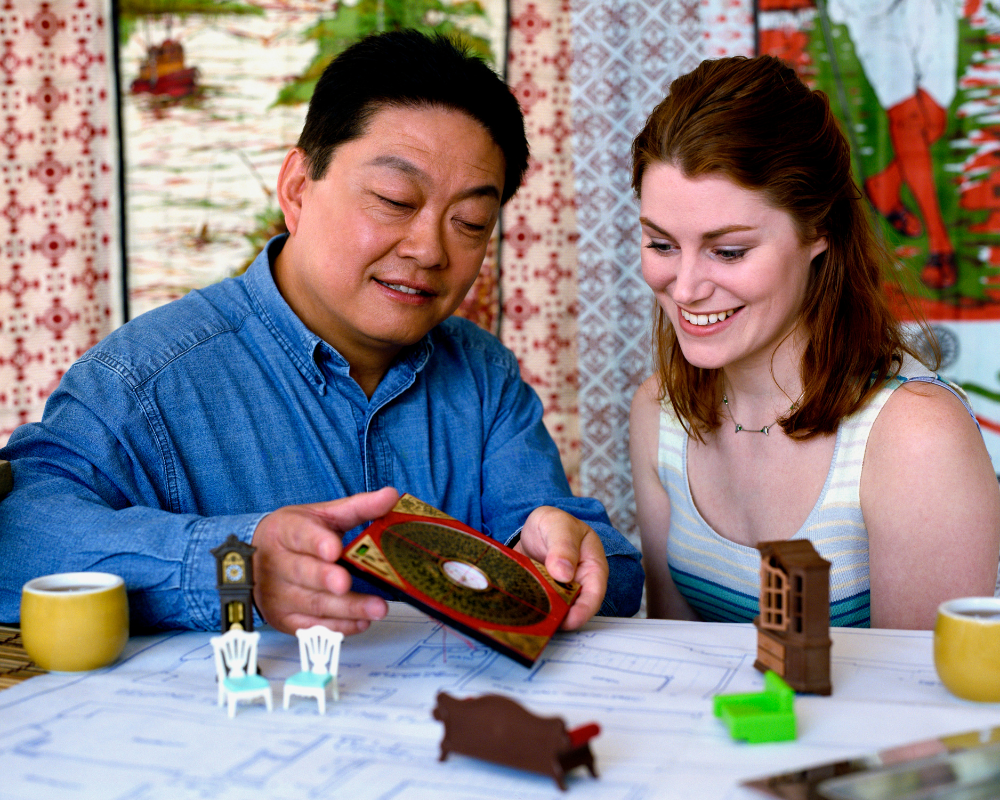
The term Feng Shui, translated as “wind and water” is an ancient Chinese practice dating back thousands of years. It is the art of arranging your environment to create balance and harmony. It focuses on the flow of Qi energy (positive Chi) within a space and aims to harness this energy for positive effects in various aspects of life. As per Feng Shui principles, everything in our surroundings exerts an influence on our well-being and the home’s energy – from furniture placement to color choices. By integrating small changes with natural elements like fire, water, wood, metal, and earth into a space while eliminating clutter and obstacles that block positive Chi flow, Feng Shui seeks to enhance vitality, prosperity, and overall better health and happiness.
Feng Shui offers practical strategies for optimizing living spaces by considering factors such as room orientation, architectural design, and the arrangement of objects within a room. Understanding how these elements interact enables individuals to cultivate settings that promote emotional well-being while also facilitating personal growth and success
Can Feng Shui be applied to any space?

Yes, the art of Feng Shui principles can be applied to any space and all areas of your life, regardless of its size or purpose. While many people associate Feng Shui with homes and offices, it can also be utilized in retail spaces, gardens, and even vehicles. The key lies in understanding the principle first step and adapting them to suit the specific characteristics of each space.
One misconception about Feng Shui is that it requires a complete overhaul of the environment, but in reality, small adjustments can make a significant impact. Rearranging furniture to create better flow or adding plants for natural energy balance are simple yet effective ways to apply Feng Shui. Furthermore, considering the unique purpose of a space is crucial – a bedroom may require different Feng Shui principles compared to an office or a restaurant.
Ultimately, whether it’s a comfy apartment or a bustling city square, embracing Feng Shui can bring about positive change by enhancing harmony and vibrancy within any given space. Its adaptability and universal applicability make it an accessible tool for anyone seeking to create balance and tranquility within their surroundings.
What are the basic principles of Feng Shui?
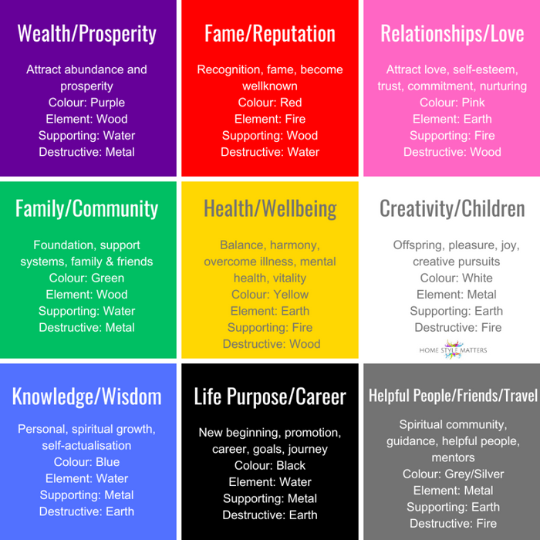
Feng Shui, an ancient Chinese art and science, is based on the idea that everything in our environment is interconnected and affects our well-being. The basic principles of Feng Shui revolve around the concept of creating harmony and balance in one’s surroundings to promote happiness, health, and prosperity. This is achieved through the placement of objects and arrangement of furniture, color schemes, and spatial orientation to allow a positive flow of energy, known as Qi, to flow a clear path, freely throughout a space.
One key principle is the Bagua map, which divides space into nine areas representing different aspects of life such as wealth, career, relationships, and health. By aligning these areas with corresponding colors, directions, the five elements (wood, fire, earth, metal, water) and the concept of Yin and Yang, a feng shui practitioner will seek to enhance specific aspects of their lives. Understanding how these elements interact and influence each other is crucial for effective practices.
Another fundamental principle involves decluttering and organizing spaces to remove obstacles that may block the flow of positive energy. Applying these principles can lead to a more harmonious living environment that is a great way to support overall well-being.
How can I use the Bagua map to improve energy flow in my home?
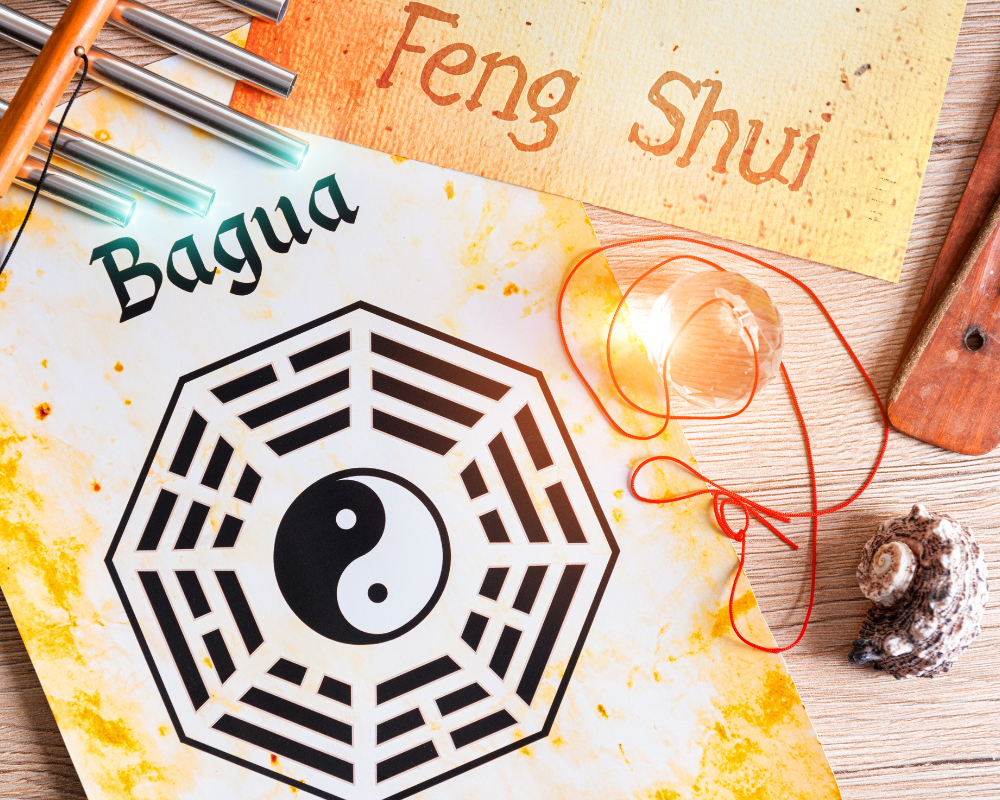
The Bagua map, a fundamental tool in the Feng Shui tradition, can significantly enhance the energy flow in your home. By aligning the map with your home’s floor plan, you can optimize the flow of positive energy, known as Chi. Each section of the map corresponds to different aspects of life such as wealth, career, and relationships. Understanding the Bagua map empowers you to apply Feng Shui principles strategically by adjusting elements within each corresponding area and direction. If you seek to improve wealth and abundance in your life, consider placing symbols of prosperity or using colors associated with wealth in the relevant part of your home’s layout.
The Bagua map enables you to identify areas where negative energy accumulates and remedy them effectively. Once you locate these zones using the map, implementing simple changes like decluttering or adding plants can help restore balance and vitality to those spaces. Balancing Yin and Yang energies throughout your surroundings is also crucial for overall well-being and harmony. Through mindful placement of furniture or incorporating natural elements into specific sections designated by the Bagua map according to Feng Shui principles, you can create an environment that fosters positive energy flow and promotes a sense of peace and equilibrium in your home.
Are there specific colors that enhance Feng Shui?
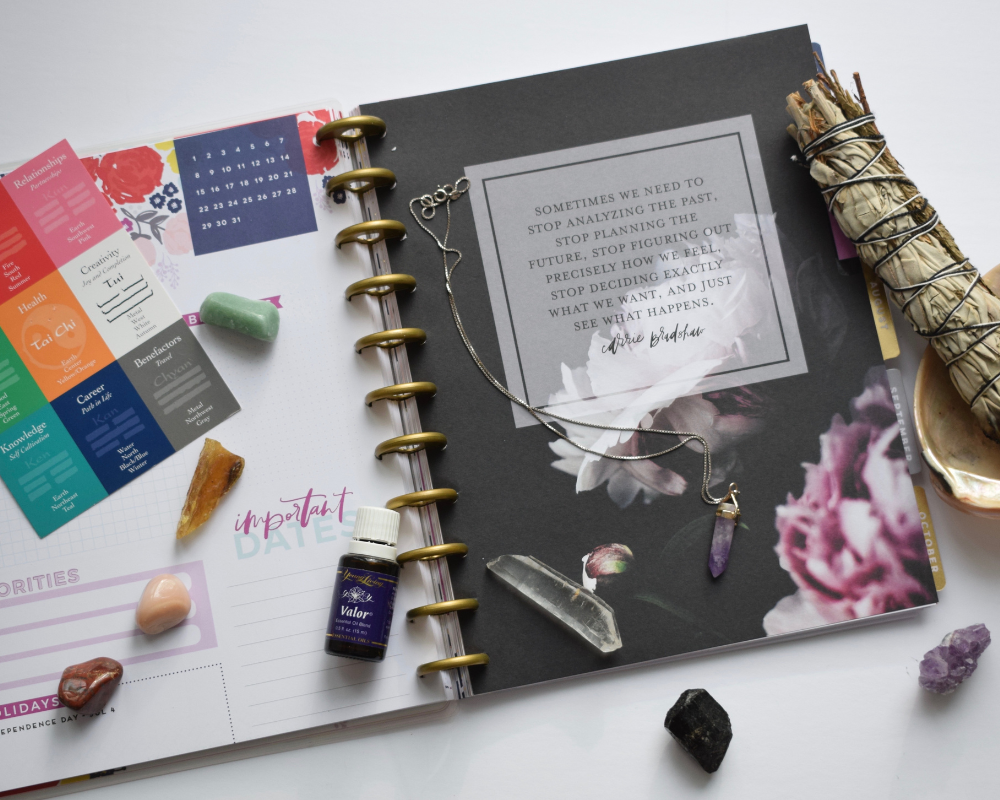
Colors play a crucial role in creating a harmonious and balanced environment In the practice of Feng Shui. Each color is believed to have its own unique personal energy and impact on the flow of Chi, or life force, within a space. It is important to note that while certain colors are generally considered auspicious in Feng Shui practice, personal preferences and individual associations with colors should also be taken into account when applying these principles to your home design and physical space.
Red: The color Red is associated with passion, vitality, and good fortune, making it a powerful tool and ideal choice for areas where you want to stimulate energy and activity.
Blue: Blue signifies calmness and tranquility, making it suitable for bedrooms or meditation design elements.
Green: Green represents growth, renewal, and vitality. Incorporating Green hues into your home can promote feelings of balance and harmony while also connecting you to the natural world.
Each of the five elements are associated with specific colors, and using these strategically in your design can help balance the energy in your space. Soft Blues and Blacks are associated with the water element, while Reds and Oranges represent fire.
Can Feng Shui improve relationships and health?
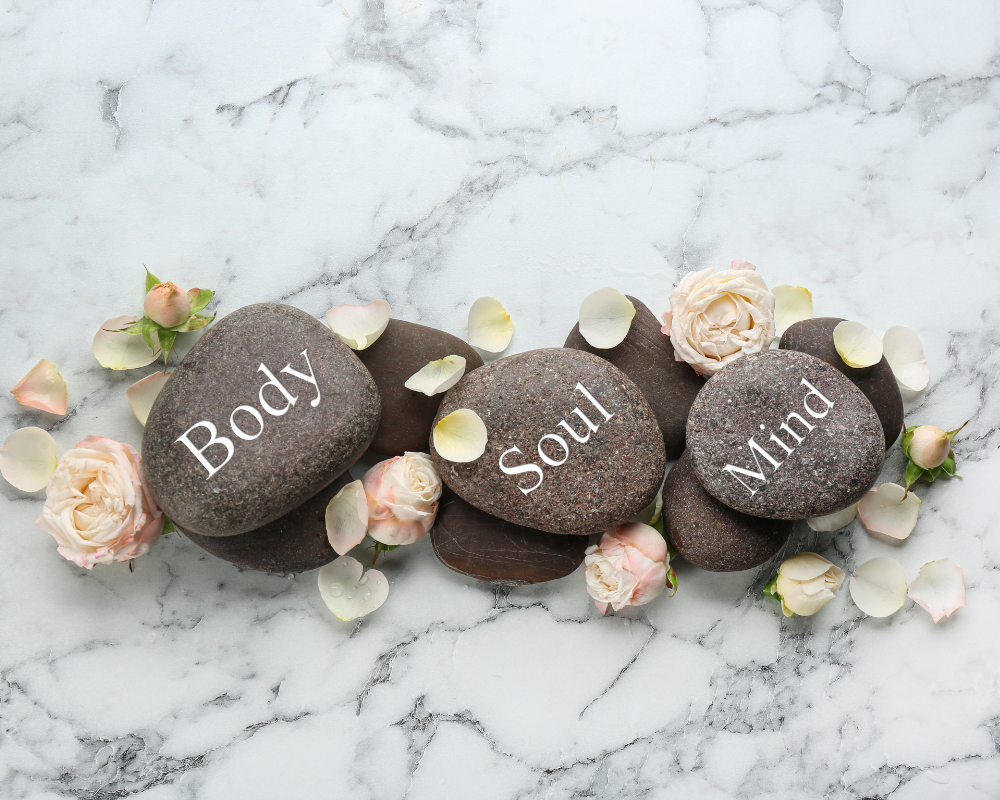
Feng Shui is believed to have a positive impact on various aspects of life, including relationships and health. By creating a harmonious and balanced environment, it may contribute to improved well-being and better interpersonal connections. Placing objects with intention and clearing clutter from shared spaces can foster a sense of tranquility and promote overall well-being.
The principles of Feng Shui emphasize the importance of living in alignment with nature’s elements. This can have a direct impact on health by promoting relaxation, reducing stress, and supporting physical vitality. By optimizing the layout of your home or workspace according to Feng Shui guidelines, you can create an environment that fosters healthier habits and enables a better night’s sleep, and mental and physical well-being. With thoughtful application of Feng Shui principles, individuals may experience improved connections with others as well as enhanced personal health.
Is Feng Shui a religious practice?
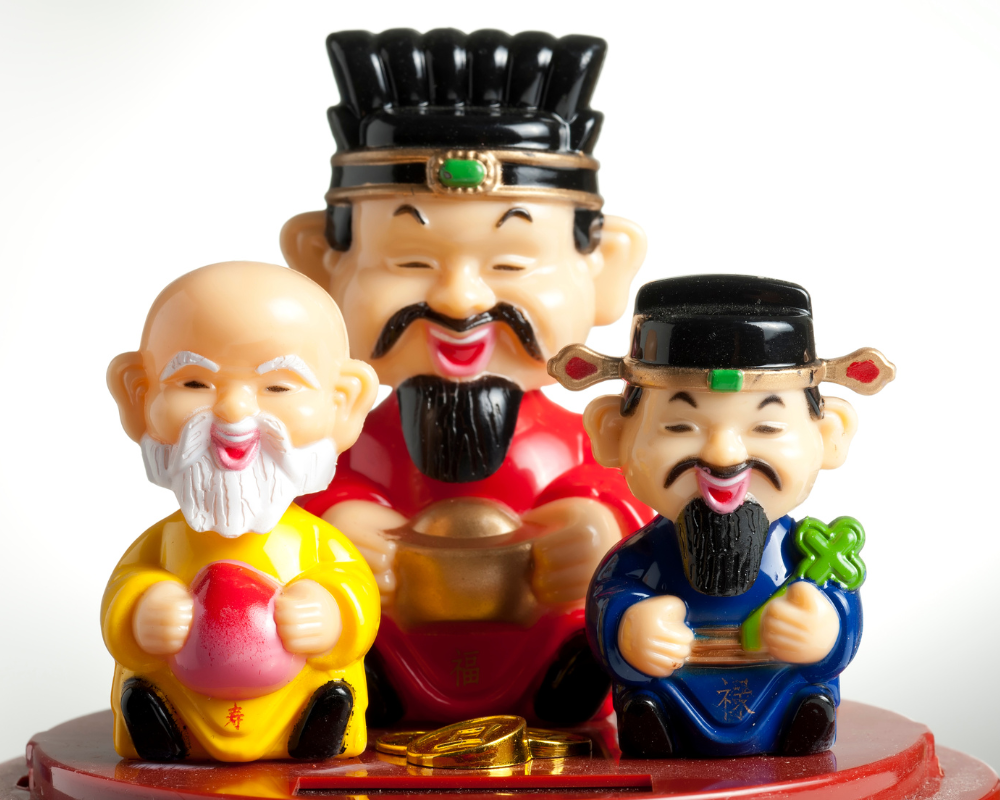
Feng Shui is often a topic of curiosity for many, and one common question that arises is whether it is a religious practice. The answer to this question may vary depending on how the term religious is defined. While Feng Shui does incorporate elements of traditional Chinese spirituality, it is not inherently tied to any specific religious doctrine or belief system. Instead, Feng Shui principles focus on harmonizing the energy flow within a space in order to promote health, prosperity, and overall well-being.
It’s important to note that while some practitioners may incorporate spiritual or religious rituals into their Feng Shui practice, the basic principles of Feng Shui can be applied in a secular context as well. In this sense, individuals from various religious backgrounds can benefit from utilizing Feng Shui techniques without necessarily engaging in any religious aspects. Ultimately, whether one considers Feng Shui as a religious practice depends greatly on their personal beliefs and how they chooses to integrate its teachings into their lives.
Conclusion
As you embark on your Feng Shui journey (pronounced Fung Shway), these answers to common questions serve as a foundation for understanding the principles and practices associated with this ancient art. By incorporating Feng Shui into your living or working space, you can create an environment that promotes positive energy, balance, and overall well-being.



